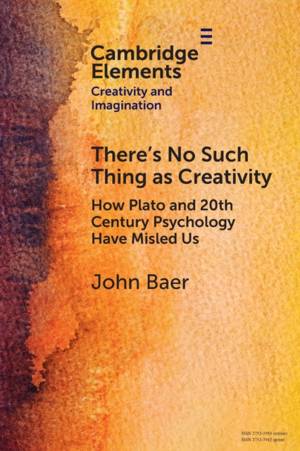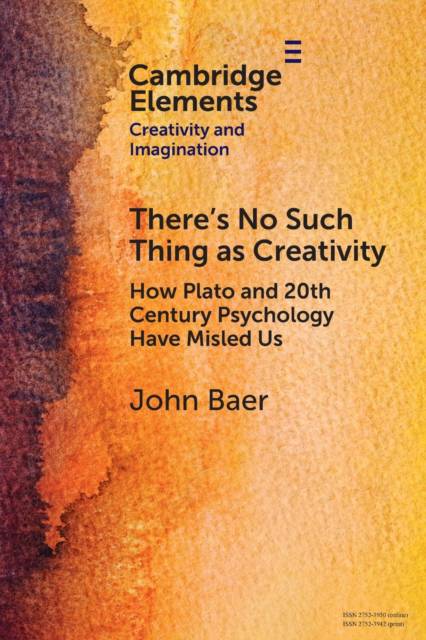
Je cadeautjes zeker op tijd in huis hebben voor de feestdagen? Kom langs in onze winkels en vind het perfecte geschenk!
- Afhalen na 1 uur in een winkel met voorraad
- Gratis thuislevering in België vanaf € 30
- Ruim aanbod met 7 miljoen producten
Je cadeautjes zeker op tijd in huis hebben voor de feestdagen? Kom langs in onze winkels en vind het perfecte geschenk!
- Afhalen na 1 uur in een winkel met voorraad
- Gratis thuislevering in België vanaf € 30
- Ruim aanbod met 7 miljoen producten
Zoeken
€ 33,45
+ 66 punten
Omschrijving
Most people (including creativity researchers) act as if they believe that creativity is not simply a useful category or label but a real thing with its own essence (just as Plato would argue that an ideal triangle has an essence that is shared with all actual triangles). Most people (including creativity researchers) also believe that there is a set of general creativity-relevant skills that can be applied to most problems in ways that will lead to more creative outcomes. Creativity research now calls these beliefs into question. A domain-general misunderstanding of the nature of creativity-relevant skills and the equally mistaken belief that creativity exists independently of actual creative things and ideas have together hindered creativity theory, research, assessment, and training. A more domain-specific and nominalist understanding of creativity will free creativity researchers to make progress in areas where it is currently stymied.
Specificaties
Betrokkenen
- Auteur(s):
- Uitgeverij:
Inhoud
- Aantal bladzijden:
- 72
- Taal:
- Engels
- Reeks:
Eigenschappen
- Productcode (EAN):
- 9781009073547
- Verschijningsdatum:
- 7/07/2022
- Uitvoering:
- Paperback
- Formaat:
- Trade paperback (VS)
- Afmetingen:
- 152 mm x 229 mm
- Gewicht:
- 108 g

Alleen bij Standaard Boekhandel
+ 66 punten op je klantenkaart van Standaard Boekhandel
Beoordelingen
We publiceren alleen reviews die voldoen aan de voorwaarden voor reviews. Bekijk onze voorwaarden voor reviews.









